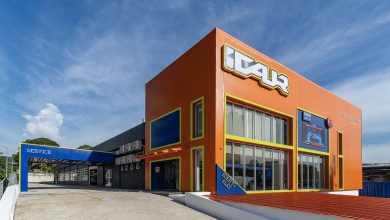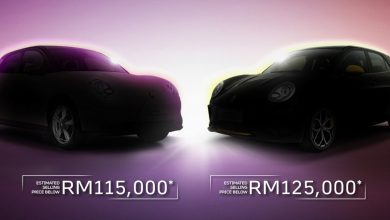Here is the fourth generation Audi RS6 Avant
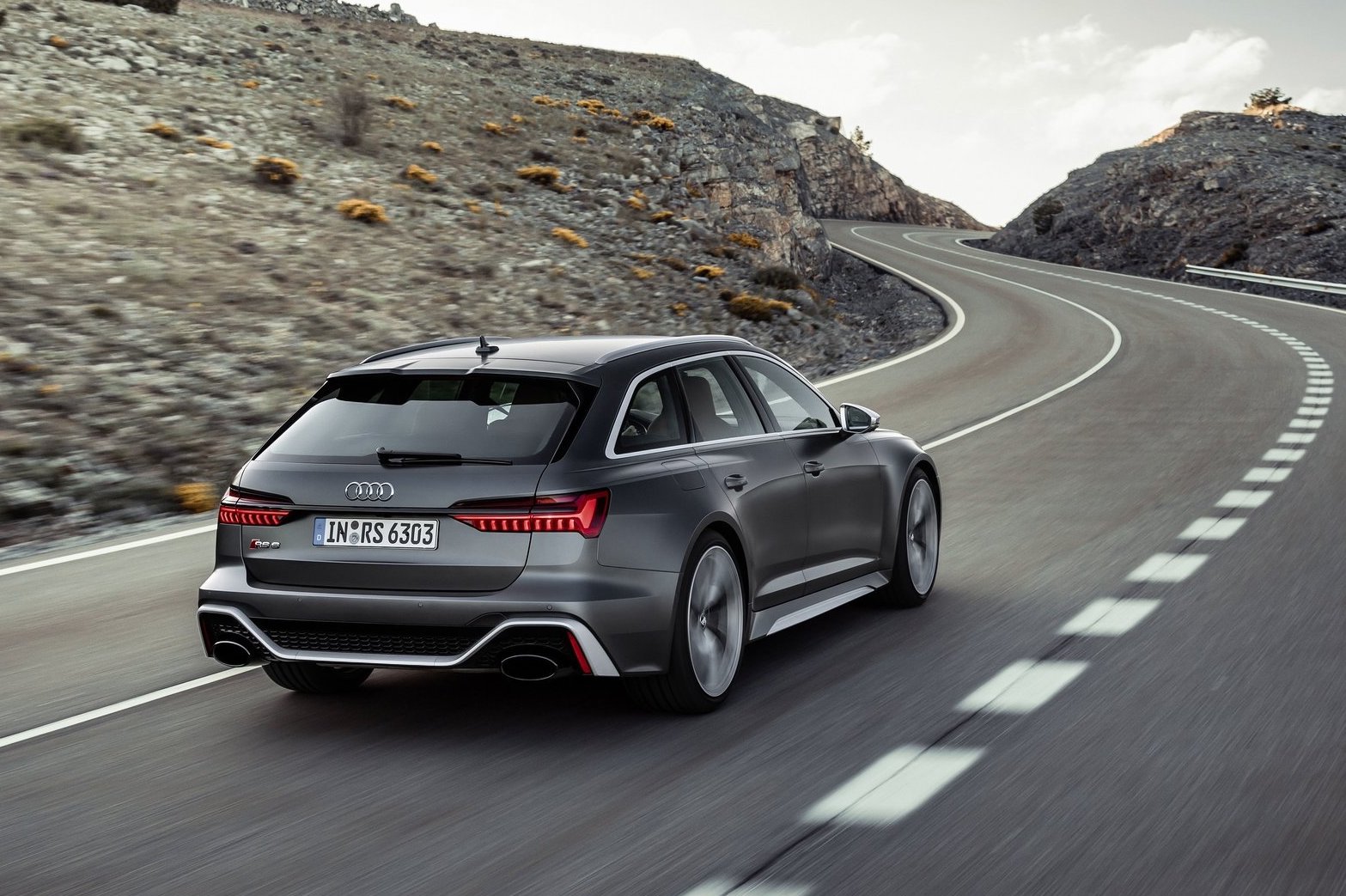
For 2019, Audi wants to tell its rivals that it still commands the top spot in the performance wagon segment and this is why this new RS6 Avant has awesome specifications and a look that is hard to ignore.
Supreme Engine
The 4.0 TFSI in the new Audi RS6 Avant delivers 600PS and 800 Nm of torque, which is maintained at this high level between 2,050 and 4,500 rpm. In just 3.6 seconds the high-performance Avant sprints from zero to 62mph, and where conditions permit the driver can see 124mph by the time 12 seconds have elapsed. Top speed is electronically governed at 155mph.
MHEV Explained
Thanks to the 48-volt main electrical system the twin-turbo V8 combines maximum performance with high efficiency. A belt alternator starter lies at the heart of the mild hybrid system (MHEV). Up to 12 kW of power can be recovered during light deceleration and stored in a separate lithium-ion battery.
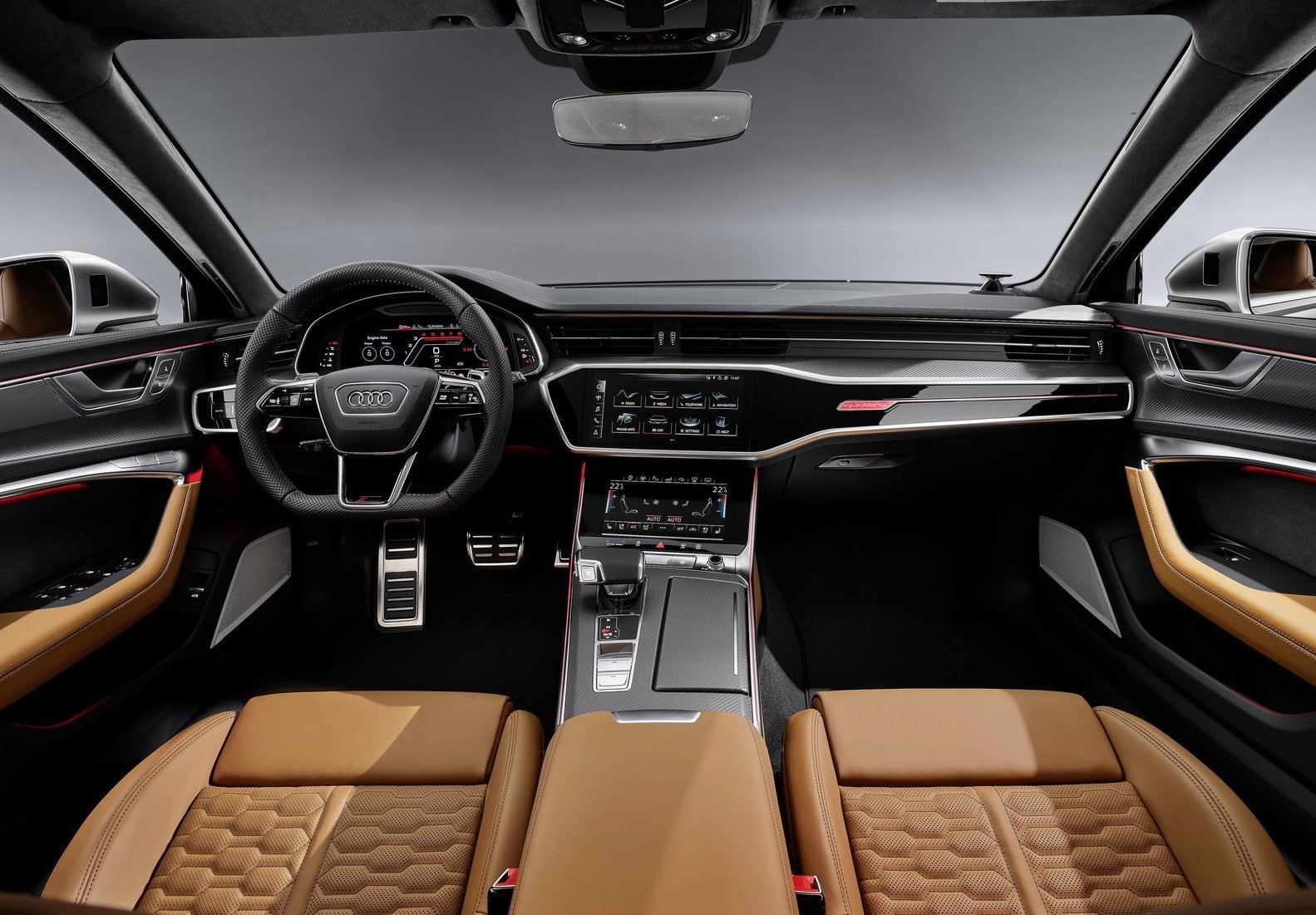
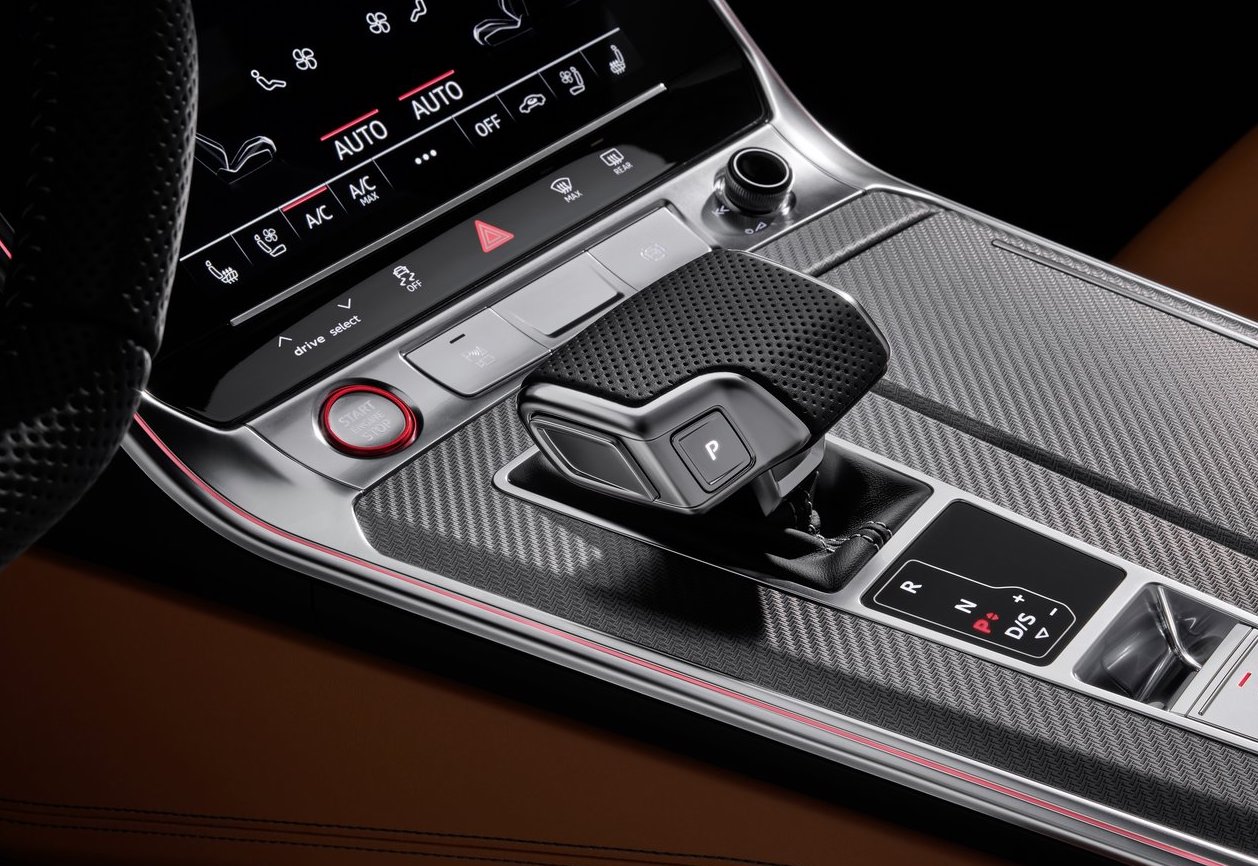
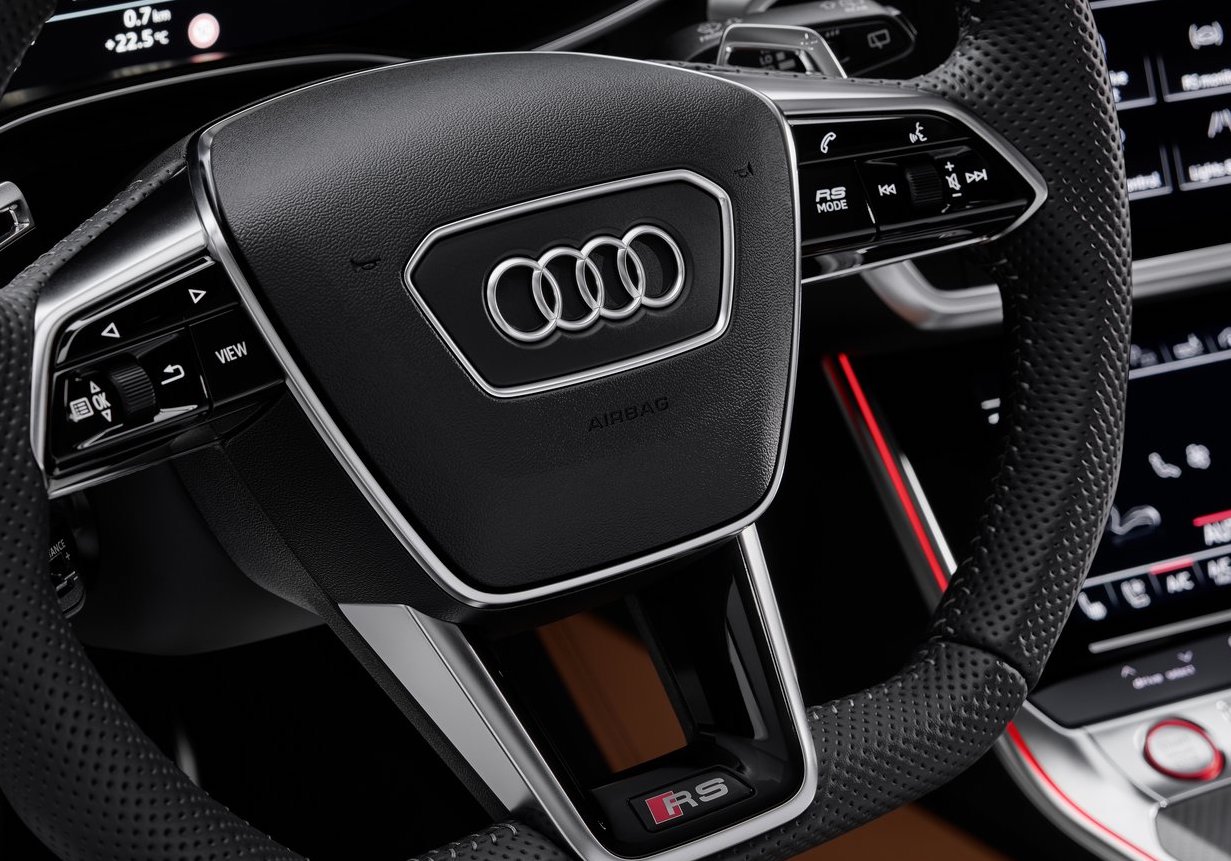
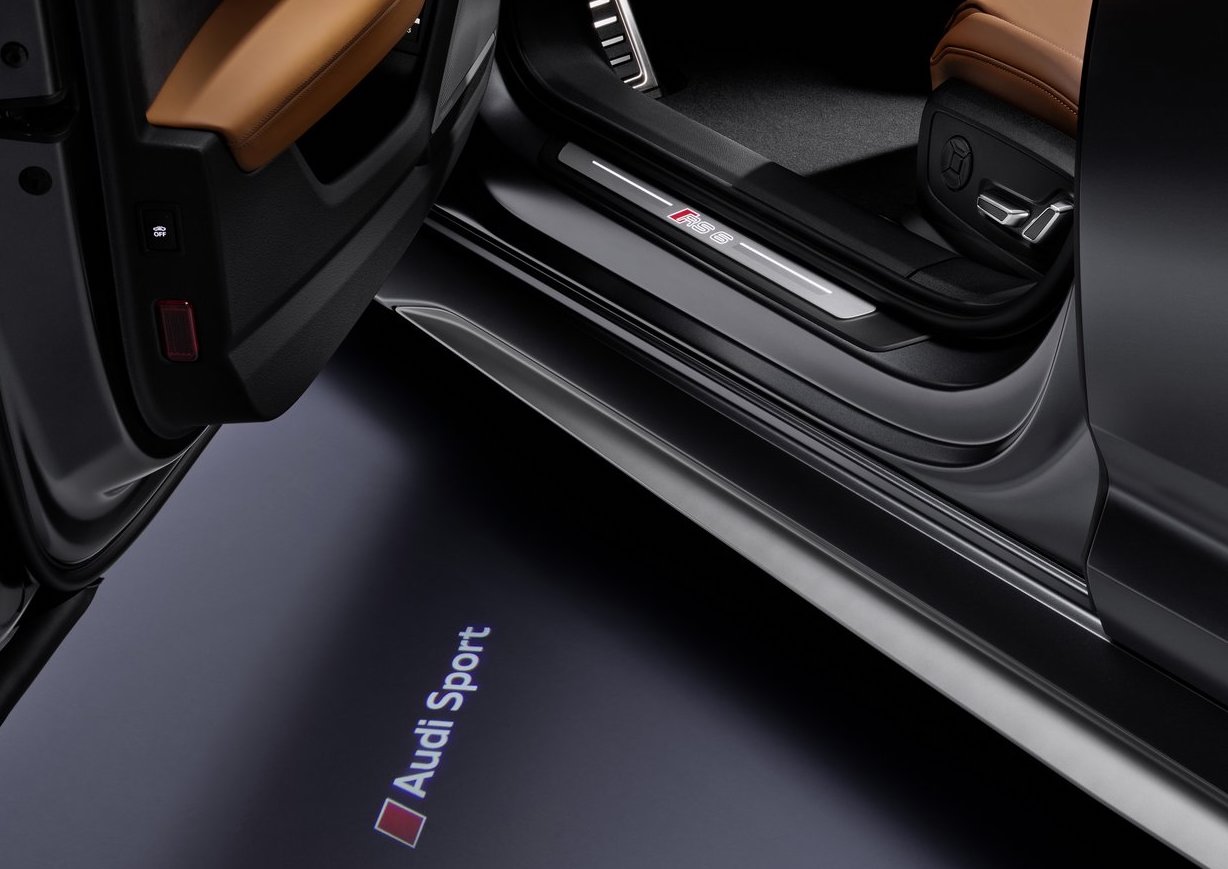
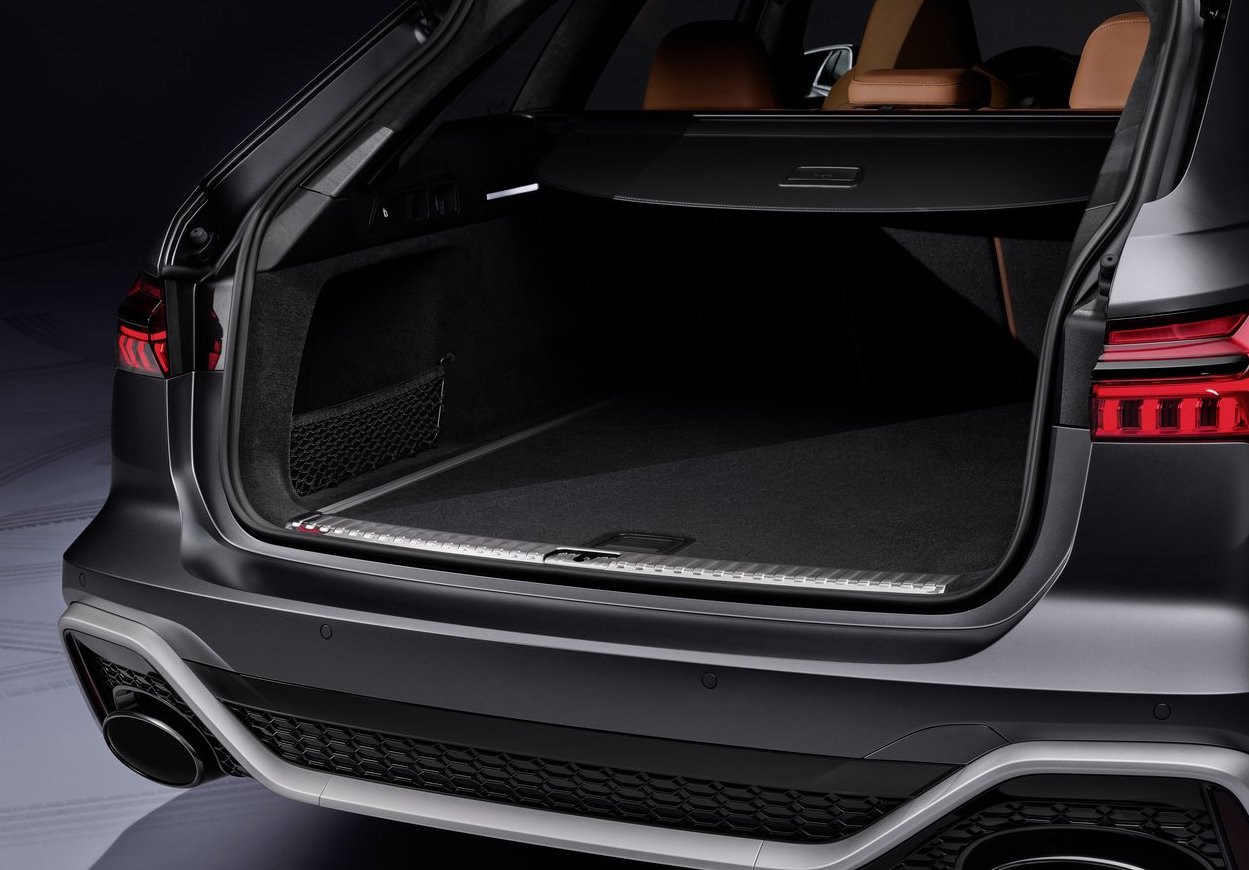
If the driver lifts off the accelerator at a speed of between 34 and 99mph, the drive management selects one of two options: Depending on the driving situation and setting in the standard Audi drive select dynamic driving system the new Audi RS6 Avant recovers energy or coasts for up to 40 seconds with the engine switched off.
Re-applying pressure on the accelerator instructs the belt alternator starter to restart the engine. MHEV technology allows for start/stop operation at speeds of up to 13mph. Fuel savings of up to 0.8 litres per 100 kilometres are possible in everyday driving.
Another key efficiency-focused component is the cylinder on demand (COD) system, which at low to intermediate loads and speeds deactivates cylinders 2, 3, 5 and 8 in the high gears by switching off injection and ignition and closing the intake and exhaust valves.
In four-cylinder operation the operating points in the active cylinders are displaced toward higher loads in areas of the characteristic map with higher efficiency, while the deactivated cylinders largely run without losses, like gas springs. When the driver presses the accelerator pedal, they are reactivated instantly.
For all its efficiency the 4.0 TFSI remains a thoroughbred V8 in terms of character and sound. The driver can influence that sound using the Audi drive select system. In the new, customisable RS1 and RS2 modes accessible via Audi drive select, customers decide themselves whether the sound should be full-blooded or balanced.
The standard eight-speed tiptronic with optimised shift times and a new Launch Control function transmits the power of the 4.0 TFSI to the quattro permanent all-wheel drive. The drive forces are distributed to the front and rear axle in a ratio of 40:60 via the all-mechanical centre differential. If one wheel slips, more drive torque automatically goes to the axle with the better traction. Up to 70 percent can be channelled to the front wheels and up to 85 percent to the rear wheels.
The wheel-selective torque control optimises the agile and safe handling of the new RS6 Avant – it brakes the wheels with reduced load on the inside of a bend slightly before they can begin to spin. The quattro sport differential shifts the drive torque when cornering at speed as required between the rear wheels, thus improving traction, stability and dynamics.
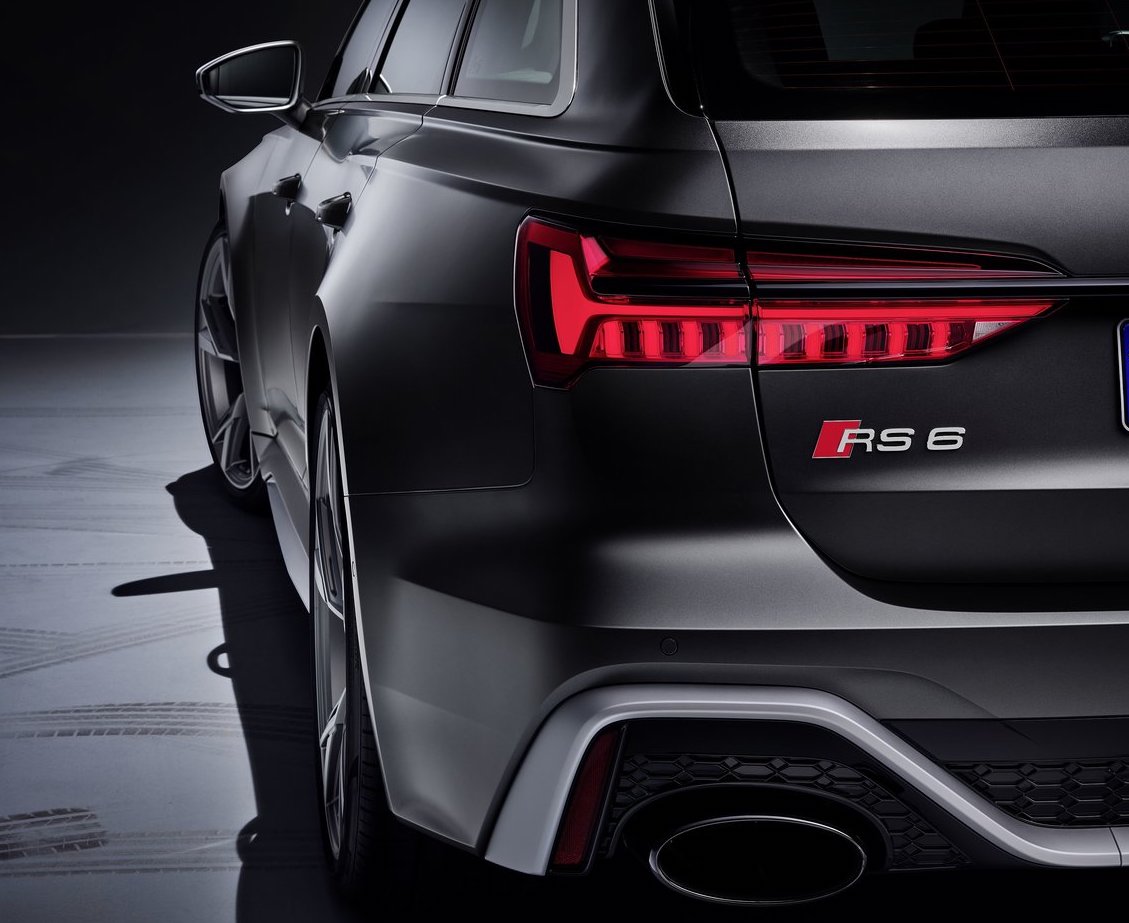
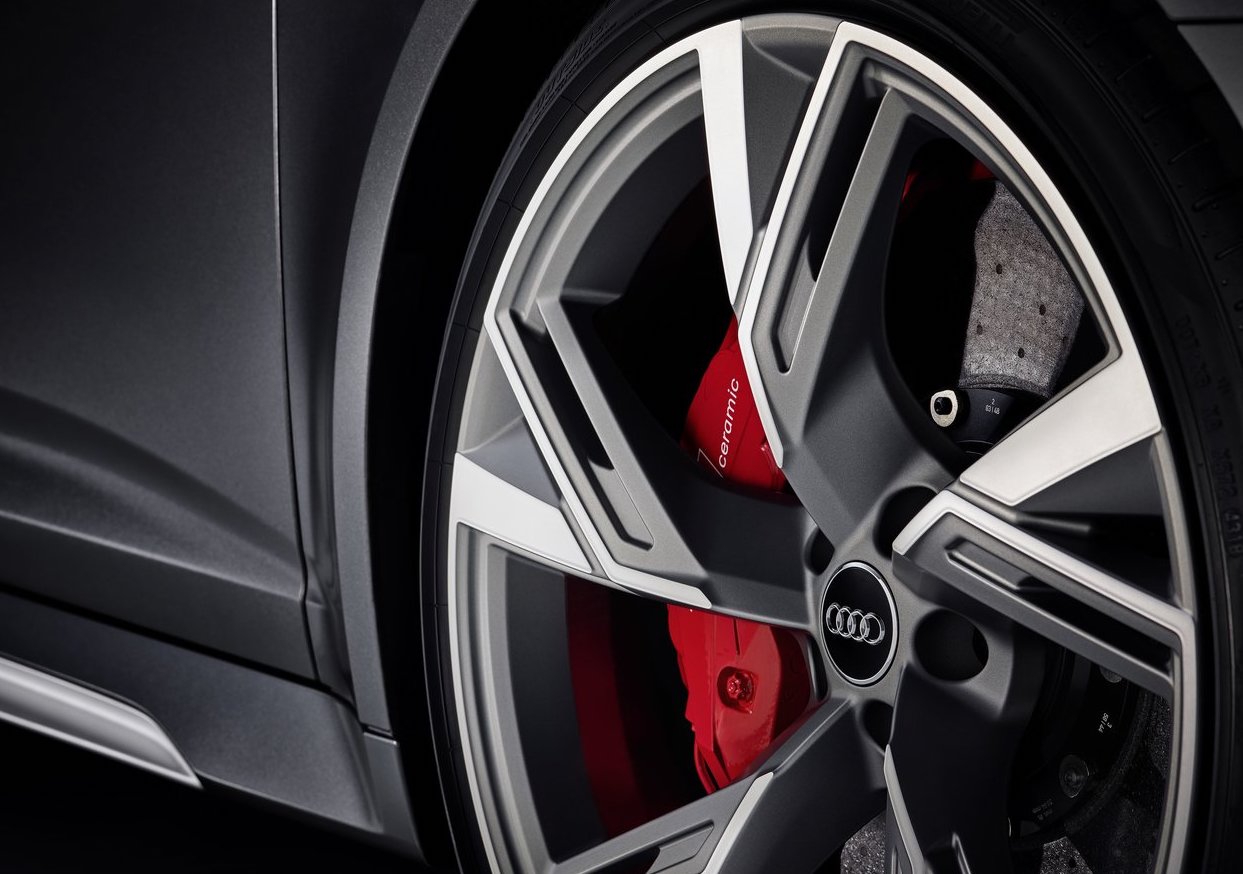
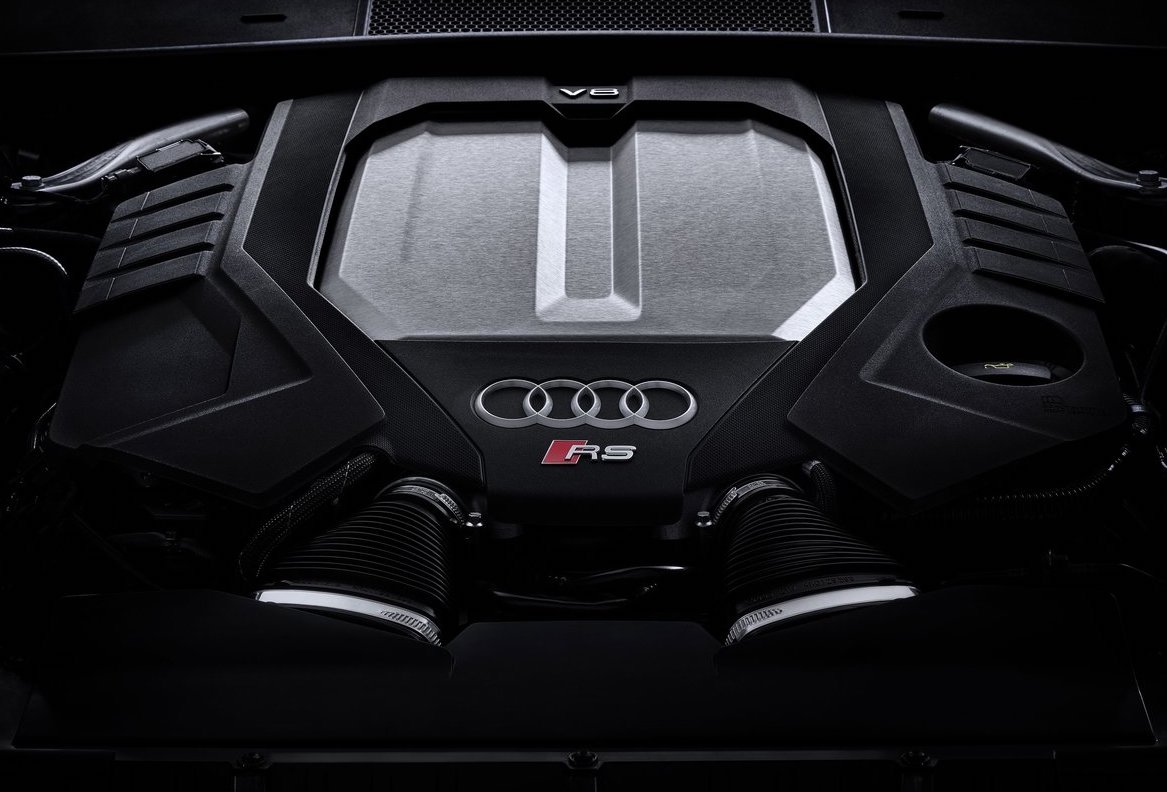


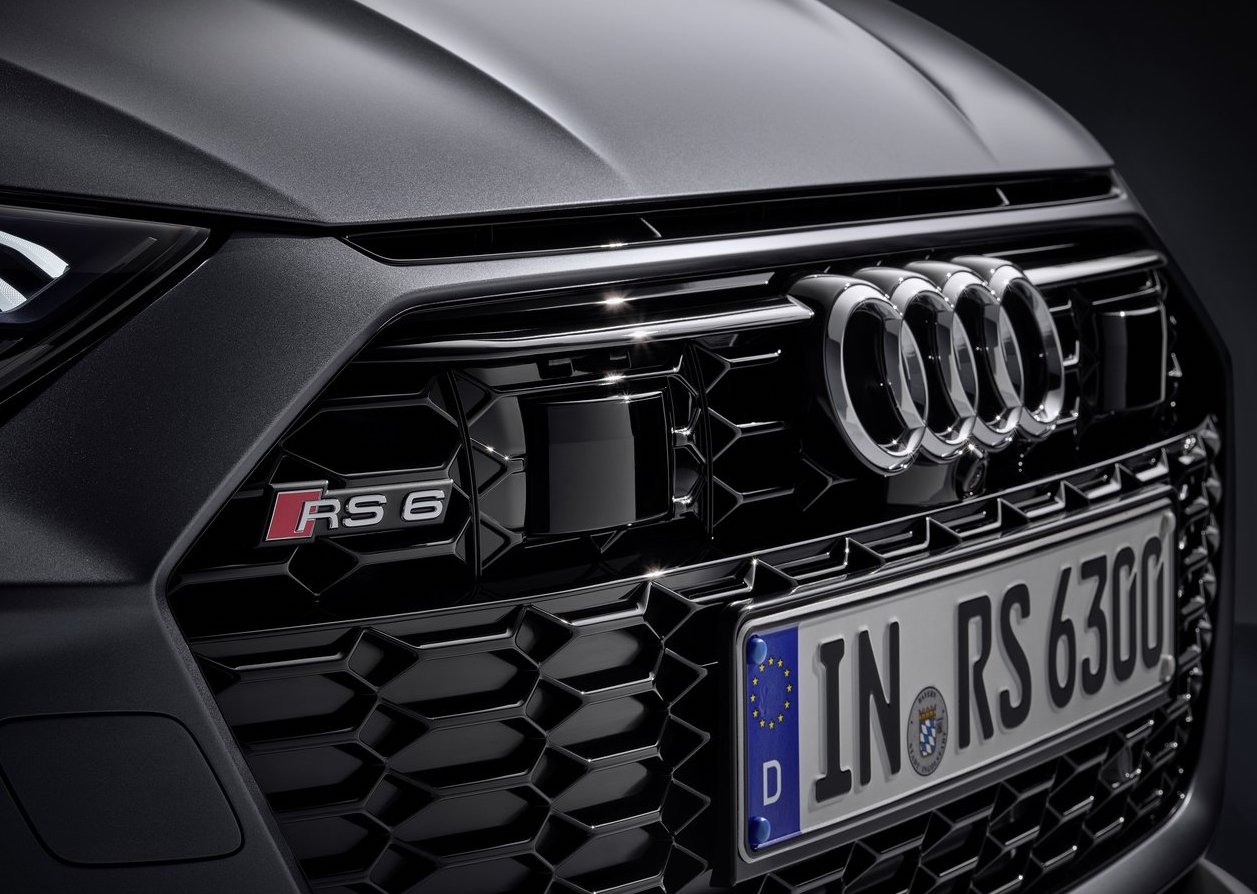
Even More Agile
In the new Audi RS6 Avant the front and rear axles use a five-link design to handle the induced longitudinal and transverse forces separately. The linkages and the subframes are made largely of aluminium. The track width is 1,668 millimetres at the front and 1,651 millimetres at the rear.
The body of the new RS6 Avant is 20 millimetres lower than in the Audi A6 Avant with standard suspension; at speeds of 74mph and above, it is lowered by another 10 millimetres. At the other end of the scale, a lift mode is available to raise the vehicle by 20 millimetres for low speed driving. The very wide spread of the RS sport air suspension offers the driver a free choice between long-distance comfort and maximum performance.
The new Audi RS6 Avant features progressive steering with its direct ratio as standard. The system develops significantly higher return forces with increasing steering angle for precise steering feedback. Its newly developed power assistance directly connects the driver and road.
Using RS Mode
The driver can change the character of the RS6 Avant using the Audi drive select dynamic handling system. Six profiles are available: comfort, auto, dynamic, efficiency, and the individually configurable RS-specific RS1 and RS2 modes, which can also be activated directly using the “RS MODE” steering wheel button. This automatically opens the RS-specific displays in the Audi virtual cockpit.
The Audi drive select dynamic handling system influences the engine and transmission management, the power steering, the suspension, the dynamic all-wheel steering, the quattro sport differential, the engine sound and the characteristics of the automatic air conditioning. The RS2 mode exists specifically to influence the Electronic Stabilisation Control (ESC) directly at the push of a button.
The new RS6 Avant is fitted standard with 21-inch cast aluminium wheels in 10-spoke star design, which are shod with 275/35 size tyres. An RS-specific wheel in 22-inch 5-V-spoke trapezoid design with 285/30 tires will be available on the Vorsprung specification. The newly developed RS ceramic brake system weighs around 34 kilograms less than its steel counterpart, thus reducing unsprung masses. The Electronic Stabilisation Control (ESC) features a sport mode or can be switched off entirely.
Sporty Interior
The pioneering interior design accentuates the character of the new Audi RS6 Avant with its driver orientation and inlays in matt brushed dark aluminium. With its horizontal alignment and its tiered, three-dimensional structure, the instrument panel appears light and sleek. The user interface of the all-digital operating system harmonises with the clear black-panel design. The top MMI touch response display is incorporated almost invisibly into the black-panel architecture. The “RS Monitor” display provides the driver with the option to see an overview of the temperature status of the drive components, the maximum g acceleration figures along with information on tire pressure and temperature in the top display.
In the Audi virtual cockpit, special RS displays provide information on tyre pressure, torque, power output, engine oil temperature, boost pressure, lap times, acceleration measurements and g forces. The shift light display prompts the driver to upshift when the maximum engine speed is reached.
The fully perforated and flat-bottomed sport leather steering wheel features new large RS shift paddles made of aluminium and multifunction buttons that allow the driver to also directly select the new Audi drive select RS1 and RS2 modes. RS and RS6 logos adorn the interior on the steering wheel, seats and the illuminated front door sill trims. The Audi Sport emblem is projected onto the road when the front or rear doors are opened.
The RS sport seats come in perforated Valcona leather with honeycomb pattern and RS embossing. Their perforation also allows ventilation for the first time.
Room For Luggage
The new Audi RS6 Avant is even roomier inside. The luggage compartment has a capacity of between 565 and 1,680 litres, and the loading width between the wheel arches is now 1.05 metres, 14 millimetres larger than the previous model. The split-folding rear seat bench in the ratio 40:20:40 can be released and folded conveniently from the luggage compartment – the luggage compartment length has grown to 1.99 metres as a result.
A power tailgate and luggage compartment cover are standard. In combination with the optional convenience key, sensor control allows the tailgate to be opened with a foot gesture. The optional swivelling trailer towing hitch features an electric release function. Also available as an option is the camera-based trailer assist, which helps the driver when reversing and manoeuvring with a trailer.


